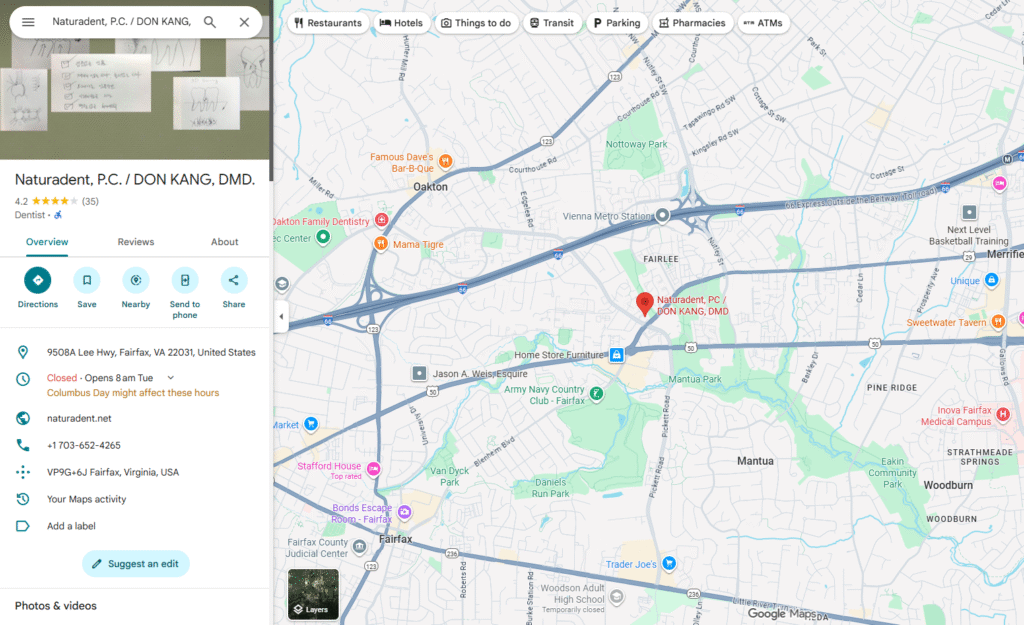Understanding the Roles of a Dentist and a Periodontist
Dentistry encompasses a broad range of oral healthcare services, and within this field, both dentists and periodontists play crucial roles. While a general dentist focuses on maintaining overall oral health, a periodontist specializes in diagnosing, preventing, and treating conditions related to the gums and supporting structures of the teeth. For patients seeking specialized care, finding a trusted Periodontist, Fairfax VA can make a significant difference in managing gum health and addressing complex periodontal issues.

Training and Education Differences
Dentists complete a general dental education that typically spans four years after undergraduate studies. During this time, they gain comprehensive knowledge of oral health, including preventive care, restorative treatments, and cosmetic procedures. On the other hand, periodontists pursue additional specialized training after dental school, usually lasting three years. This advanced education focuses on gum disease, implant placement, and the management of oral inflammation and bone loss. The extended training equips periodontists with the skills necessary to handle severe periodontal conditions that go beyond the scope of general dentistry.
Scope of Practice
General dentists provide a wide array of services, including routine cleanings, fillings, crowns, bridges, and preventive advice. They are often the first point of contact for oral health concerns and are skilled in identifying early signs of gum disease. Periodontists, however, concentrate on treating gum disease in its various stages, performing procedures such as scaling and root planing, gum graft surgery, and dental implant placement. Their expertise is crucial for patients with advanced periodontal issues or those requiring complex oral surgeries.
Treatment Approaches
A dentist may manage mild gum inflammation through professional cleanings and patient education on oral hygiene techniques. When gum disease progresses or becomes severe, a periodontist steps in with advanced treatments designed to preserve gum tissue and prevent tooth loss. Periodontists also collaborate with general dentists to create comprehensive care plans that integrate both routine dental maintenance and specialized periodontal treatment, ensuring a holistic approach to oral health.
When to See a Periodontist
Patients should consider visiting a periodontist if they experience persistent gum bleeding, gum recession, loose teeth, or chronic bad breath. Early intervention can prevent more serious complications, such as tooth loss or systemic health issues linked to gum disease. Additionally, individuals planning for dental implants often consult a periodontist to ensure the gums and underlying bone are healthy enough to support the implant, which enhances long-term success.
Oral Health Maintenance
Both dentists and periodontists emphasize the importance of maintaining excellent oral hygiene. Regular brushing, flossing, and dental check-ups are essential preventive measures. Periodontists may also recommend specialized treatments or lifestyle adjustments to manage chronic conditions like diabetes or smoking, which can exacerbate gum disease. By combining preventive care with targeted therapy, patients can achieve optimal oral health outcomes.
FAQs
Q1: Can a general dentist treat all types of gum disease?
A1: While general dentists can manage early-stage gum disease, more advanced cases often require a periodontist’s expertise to prevent progression and restore gum health.
Q2: How long does periodontal treatment usually take?
A2: The duration varies depending on the severity of the condition and the type of procedure, ranging from a few weeks for non-surgical therapy to several months for surgical treatments and recovery.
Q3: Are periodontal procedures painful?
A3: Modern techniques and local anesthesia make most procedures relatively comfortable. Some post-treatment discomfort is normal but can be managed with medications and proper care.
Q4: How often should I see a periodontist?
A4: Patients with ongoing gum issues may require visits every 3 to 6 months, whereas those with healthy gums typically follow the schedule recommended by their general dentist.
Q5: Is it necessary to see both a dentist and a periodontist?
A5: Yes, collaborative care ensures comprehensive oral health, addressing both routine maintenance and specialized periodontal concerns.
Q6: Can gum disease affect overall health?
A6: Research shows that untreated gum disease can contribute to systemic health issues such as heart disease, diabetes, and respiratory conditions, making early intervention critical.
Naturadent, P.C. / DON KANG, DMD.
9508A Lee Hwy, Fairfax,
VA 22031, United States
+17036524265








